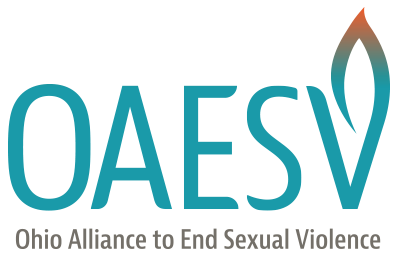Advocate Privilege in Ohio: It’s Time
When you visit your doctor because something’s wrong, it can feel embarrassing and scary – especially if it’s a very personal problem that you don’t want anyone to know about. But you take comfort in the fact that your doctor cannot be legally compelled to discuss your medical issues with anyone.
Don’t survivors of rape deserve the same consideration when accessing rape crisis services?
The experience of sexual violence is traumatic and survivors often feel afraid to report the crime or to tell anyone. Much of that fear is based on the valid concern of not being believed and of feeling embarrassed or ashamed. Survivors should be able to obtain the advocacy services and support they deserve without fear that what they disclose will be shared with others.
Ohio’s rape crisis programs have always provided confidential advocacy services for survivors. Confidentiality is a requirement of the federal Violence Against Women Act, and it’s a requirement in the Core Standards for Rape Crisis Programs in Ohio. So why isn’t confidentiality enough? Why is Advocate Privilege needed?
Confidentiality means that an advocate cannot share any identifying information about the survivor or their case with anyone unless one of three conditions exist: 1) the survivor grants permission to share information; 2) it’s a mandatory reporting situation (such as child abuse); or 3) the advocate is compelled via subpoena to share the information in a court of law.
It is that third condition that is of greatest concern. Currently in Ohio, a victim advocate can be compelled by prosecutors, defense attorneys, as well as attorneys on both sides of a civil matter, to testify in court and/or turn over documentation of their interactions with survivors. This means that very personal information about survivors could be shared against their wishes and in ways that could be harmful to them or their case.
It’s time we change this. It’s time that survivors have access to advocacy services shielded by the highest level of protection.
Here’s why Advocate Privilege in Ohio makes sense:
- As the number of counties providing rape crisis services has increased significantly since the 2014 State Rape Crisis Program Fund implementation, so too has the number of Ohio survivors obtaining services at rape crisis centers. Strikingly, this yearly increase in access to services accompanied a rise in the number of Ohio survivors reporting their assaults to police. This increase in reports to law enforcement every year since 2014 supports the fact that access to advocacy services leads to increased reporting of sexual assault.
- Two-thirds of states in the U.S. have privilege for rape crisis center advocates, domestic violence advocates, or both.
- Advocate Privilege does not eliminate mandated reporting requirements related to child abuse, nor does it prevent survivors from granting advocates permission to share their information with individuals or agencies of the survivor’s choosing.
- Advocate Privilege does not impinge on any rights of defendants, nor is the burden of proof in sexual assault cases affected in any way.
When someone has suffered the horrific and traumatic crime of rape in Ohio, they should not have to worry about what they say to an advocate. They should be able to trust that a rape crisis advocate – whose sole purpose is to advocate for the survivor – will not be forced to reveal information about them, nor what they’ve said, done, or endured. This can only be accomplished by enacting Advocate Privilege in Ohio.
In the coming days and weeks, OAESV will ask for your help in advocating for Advocate Privilege in Ohio through specific and strategic action steps. Be sure to follow us on Facebook, Twitter, and Instagram for updates, and be ready to make your voice heard!
Together we make change happen. Together, #WeAreOAESV.
